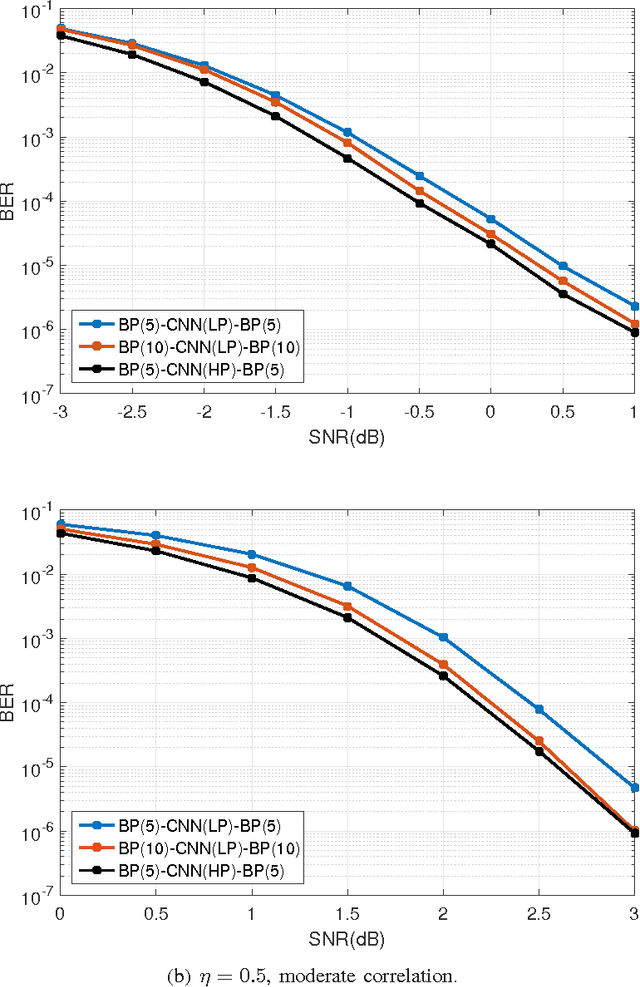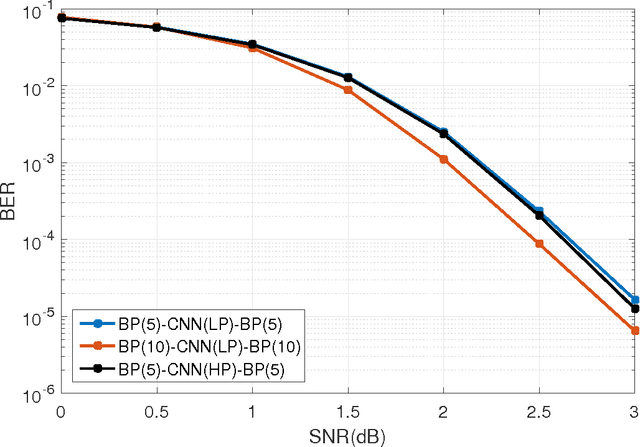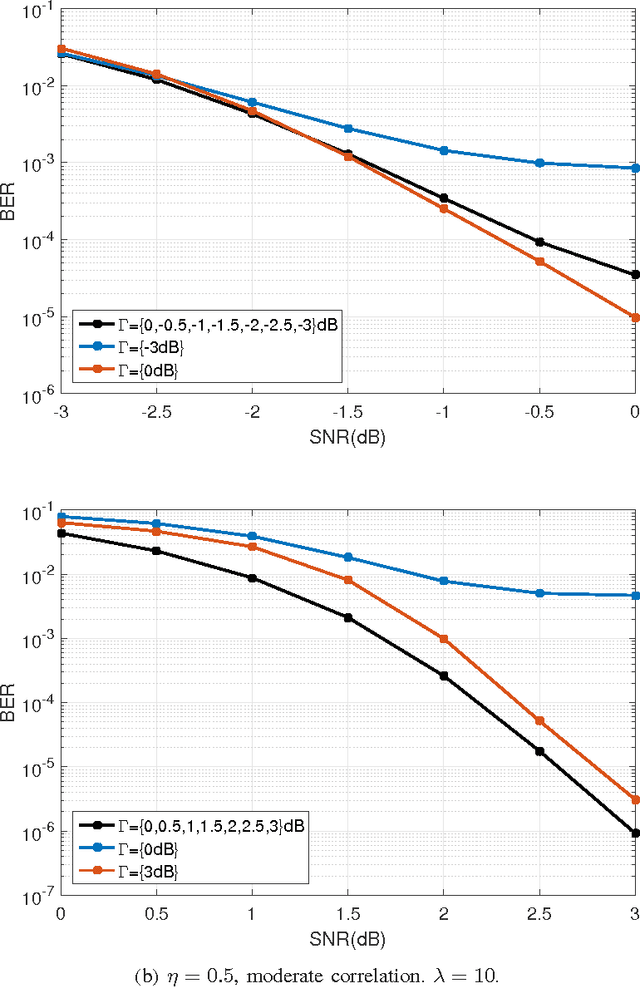An Iterative BP-CNN Architecture for Channel Decoding
Paper and Code
Jul 18, 2017



Inspired by recent advances in deep learning, we propose a novel iterative BP-CNN architecture for channel decoding under correlated noise. This architecture concatenates a trained convolutional neural network (CNN) with a standard belief-propagation (BP) decoder. The standard BP decoder is used to estimate the coded bits, followed by a CNN to remove the estimation errors of the BP decoder and obtain a more accurate estimation of the channel noise. Iterating between BP and CNN will gradually improve the decoding SNR and hence result in better decoding performance. To train a well-behaved CNN model, we define a new loss function which involves not only the accuracy of the noise estimation but also the normality test for the estimation errors, i.e., to measure how likely the estimation errors follow a Gaussian distribution. The introduction of the normality test to the CNN training shapes the residual noise distribution and further reduces the BER of the iterative decoding, compared to using the standard quadratic loss function. We carry out extensive experiments to analyze and verify the proposed framework. The iterative BP-CNN decoder has better BER performance with lower complexity, is suitable for parallel implementation, does not rely on any specific channel model or encoding method, and is robust against training mismatches. All of these features make it a good candidate for decoding modern channel codes.
 Add to Chrome
Add to Chrome Add to Firefox
Add to Firefox Add to Edge
Add to Edge